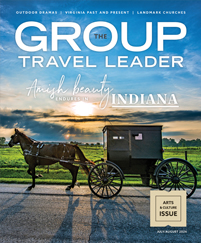Although much of the country saw positive tourism numbers in 2010, the one notable exception was the Gulf Coast region, where summer beach-going business was heavily affected by the Deepwater Horizon oil spill.
However, convention and visitors bureaus in the area are preparing for a strong comeback in 2011.
The damaged oil well spilled crude into the Gulf of Mexico from April until mid-July, when a temporary cap was put in place, followed by a permanent cap in September. During that time, tar balls and oil slicks appeared in some areas, such as Gulf Shores and Orange Beach, Ala.
The oil and near-constant media coverage kept significant numbers of vacationers away from the destination during the usually busy summer travel season.
“Our June lodging numbers were down 38 percent, and we were down 53.2 percent in July,” said Kim Chapman, public relations manager for the Alabama Gulf Coast Convention and Visitors Bureau. “A very large part of that was due to perception. Throughout the entire summer, our beach and our waters were never closed. We had a swimming advisory issued as a precaution, but the beach was never closed.”
A marketing blitz
Almost immediately after the well was damaged, the CVB began aggressive marketing efforts to inform the public of what was happening at its destination. It activated an emergency page on its website normally used for hurricane information and eventually spun the page off as www.thebeachfacts.com. The page includes official environmental information as well as a series of daily videos posted on YouTube to show the true state of the coastline.
“We made a commitment to be honest with the videos, and we were honest, regardless,” Chapman said. “When it got ugly, we showed that impact.”
The CVB also generated a lot of buzz with Concerts for the Coast, a series of open-air musical events on the beach and at nearby attractions. Artists such as Jimmy Buffett, Hank Williams Jr., Bon Jovi and Alan Jackson performed sold-out shows, some of which were broadcast on national television.
As a result of the concerts, several major festivals and the continued marketing efforts, Chapman believes that Alabama’s Gulf Coast is well on the way to a strong recovery next year.
“We’re working very hard to get people to come back,” she said. “It’s not a one-season battle — it’s something we’re going to have to face for quite a while. But we’re a resilient island, and we’ve faced other disasters before.”
Turning the corner
On Florida’s panhandle, Destin, Fort Walton and the other destinations that make up the Emerald Coast saw no oil at all on their shores. But the perception of oil still caused many vacationers to turn elsewhere.
“The national media played out the perception that the entire Gulf Coast had oil on it, but that wasn’t the case,” said Mark Beloenger, executive director of the Emerald Coast Convention and Visitors Bureau. “But the national media and the perception issue affected us.”
Like their counterparts in Alabama, the destinations in northwest Florida undertook efforts to spread the word about the reality of their situation. Although summer travel was affected, it appears that a turnaround may already be underway — October’s hotel occupancy on the Emerald Coast exceeded the same month from 2009.
Beloenger and the CVB are taking an aggressive posture toward next year, saying that hotel rates will be back to normal by spring.
“We’re turning the corner this fall, and hopefully, next spring and summer will be extremely successful for us,” he said. “We’re going to put the oil behind us and start talking about how great the beaches really are.”










